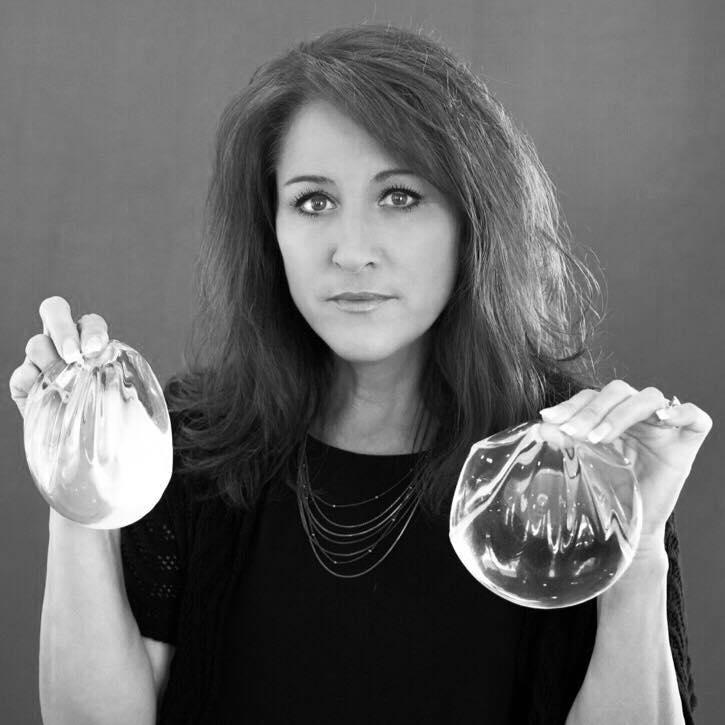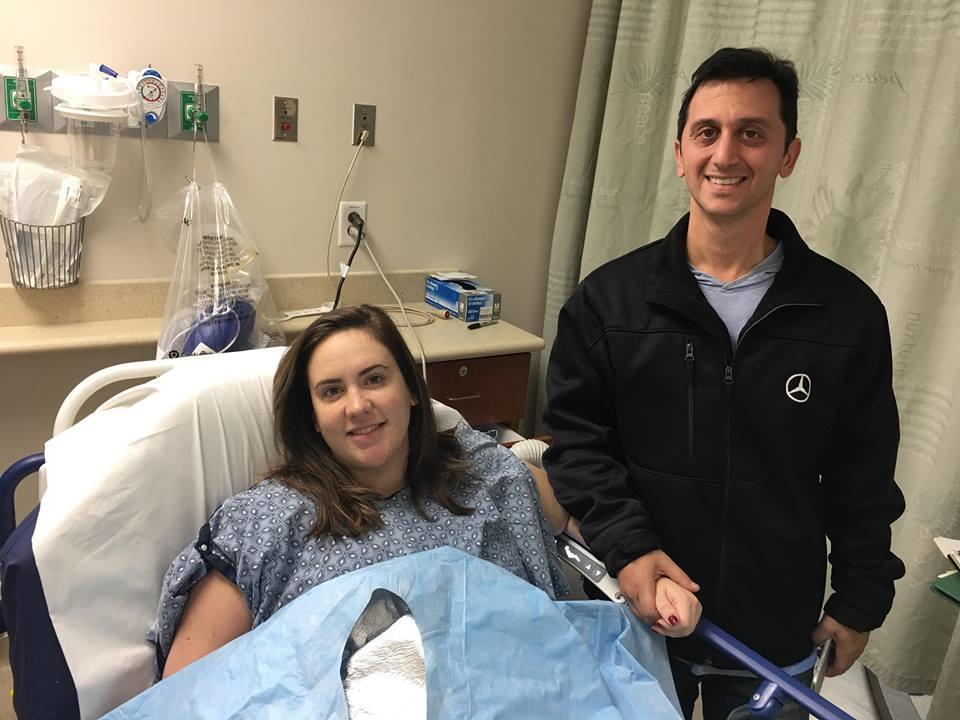
Caption
Breast Implant Safety Alliance board member Robyn Towt holds a pair of breast implants. Towt says the implants she got after a double mastectomy left her with heart palpitations and hair loss after only four months — until the implants were removed.
Credit: Submitted


